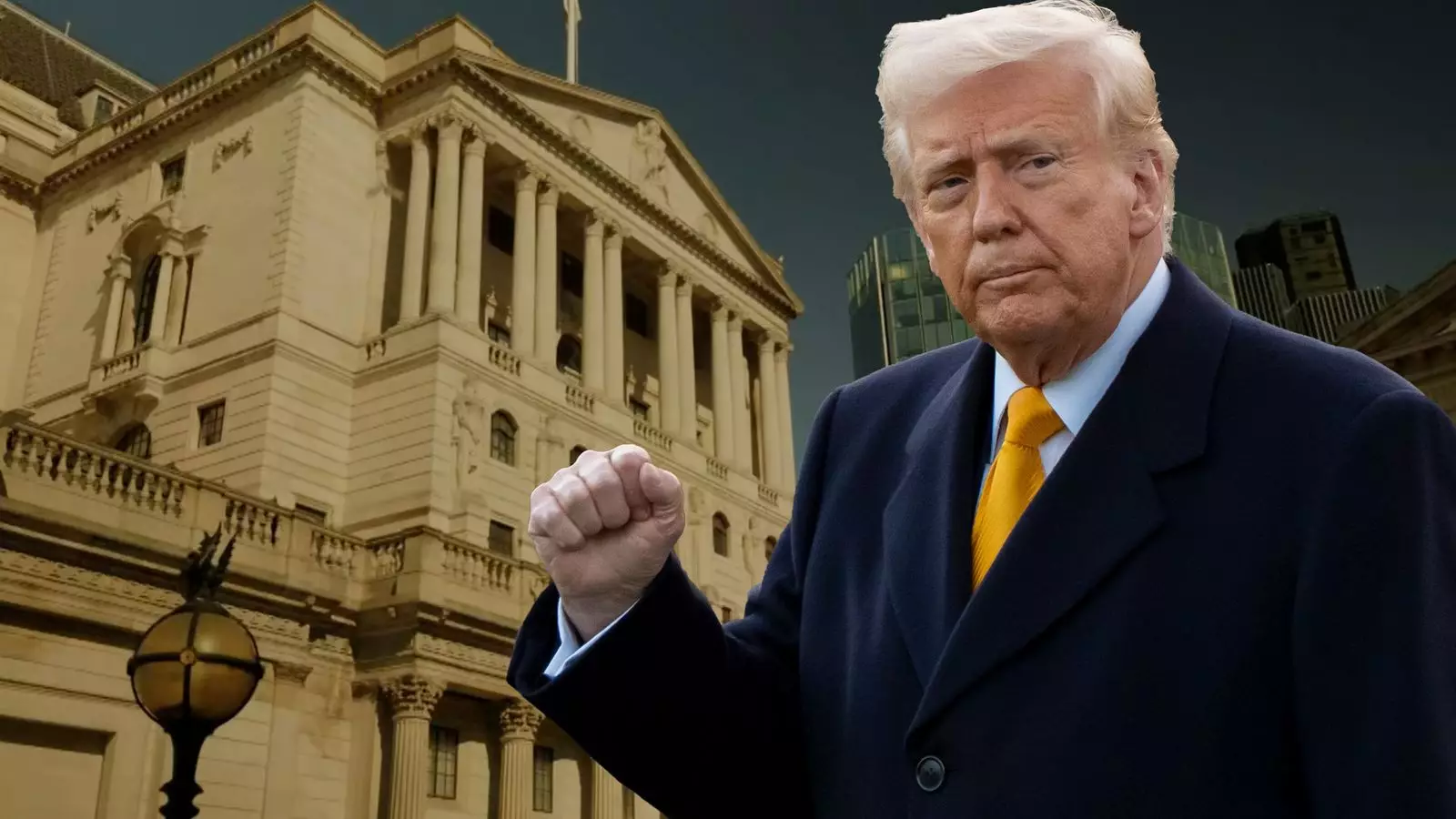The financial landscape is shifting under the weight of impending interest rate cuts from the Bank of England. Recent analysis indicates an unmistakable 100% confidence among investors that a reduction will occur next month—an aggressive shift largely fueled by the repercussions of Donald Trump’s erratic trade policies. Initially, market sentiment reflected an 82% chance of a diminutive decline from 4.5% to 4.25% by May 8. However, this hesitance quickly dissolved following comments from Megan Greene, a prominent figure in the rate-setting committee. Her remarks unveiled an unsettling underbelly of the UK’s economic prospects amid rising global ambitions and nationalist tariffs that are strangling growth.
The implications of her argument cannot be understated: the very tariffs designed to protect domestic industries could, paradoxically, exert downward pressure on inflation within the UK. This conundrum illustrates a complex economic landscape where the anticipated outcomes of trade wars do not merely affect the countries involved but reverberate across the global market. Greene’s assertion that UK consumers might benefit from a surge of less expensive imports exposes a dichotomy in economic theory that traditionalists might find uncomfortable.
A Storm on the Horizon: Rising Inflation versus Global Stability
Despite a recent dip in inflationary pressures, the forecast suggests a burgeoning tide that will test policymakers’ resolve. The Bank of England anticipates inflation to rise, driven not only by fluctuating energy prices but also the inevitable ramifications of tax increases imposed on businesses. As the world braces for the full impact of the Trump trade saga, the Bank is caught in a quagmire: the specter of rising inflation limits their capacity to respond with aggressive rate cuts to stimulate growth.
Amid this turmoil, recent data indicates that financial markets are bracing for up to three interest rate cuts by year’s end. This urgency reflects a growing recognition that economic activity is stagnating in the face of an increasingly isolated global trade environment. Simultaneously, the European Central Bank has adopted a more flexible approach, executing rate cuts at a rapid pace, while the US Federal Reserve treads cautiously, haunted by a precarious balance between stimulating growth and staving off inflation.
The Reckoning: A Clash of Economic Philosophy and Presidential Influence
Adding yet another layer of complexity, President Trump’s animosity toward the Federal Reserve and its chairman, Jay Powell, illustrates how political winds can shape central bank policies. His vitriolic calls for immediate rate cuts—and even the dismissal of Powell—disorient financial markets. The President’s unilateral approach raises essential questions about the autonomy of economic institutions in democratic societies and their ability to operate independently of political pressures.
In this context, Rachel Reeves, Chancellor of the Exchequer, finds herself straddling two worlds. While she arrives in Washington to engage with her counterpart on trade agreements aimed at alleviating tariffs, her effectiveness hinges on a delicate understanding of global commerce and internal political dynamics. For Reeves, a successful negotiation could provide the essential impetus for economic growth that the UK desperately needs amid these turbulent times.
The Paradox of Tariffs: Disinflationary Forces Amidst Political Drama
The paradox that defines this trade war is as profound as it is unsettling: while tariffs are traditionally conceived as inflationary tools, their net effect can lead to disinflationary forces that contradict foundational economic principles. Greene’s warning that uncertainty encircles this situation adds to the volatility; how do policymakers navigate an environment where tariffs, typically seen as aggressive economic tools, have the potential to exert opposite effects?
Ultimately, the interplay between UK inflationary trends, global economic stability, and Trump’s unpredictable trade maneuvers complicates the road ahead. In a world where economic policies are increasingly dictated by populist rhetoric, the need for coherent and objective economic strategies has never been more vital. As investors and policymakers alike brace for what lies ahead, the real question now is whether economic institutions can withstand the weight of political influence while still fostering prosperity in uncertain times.



Leave a Reply